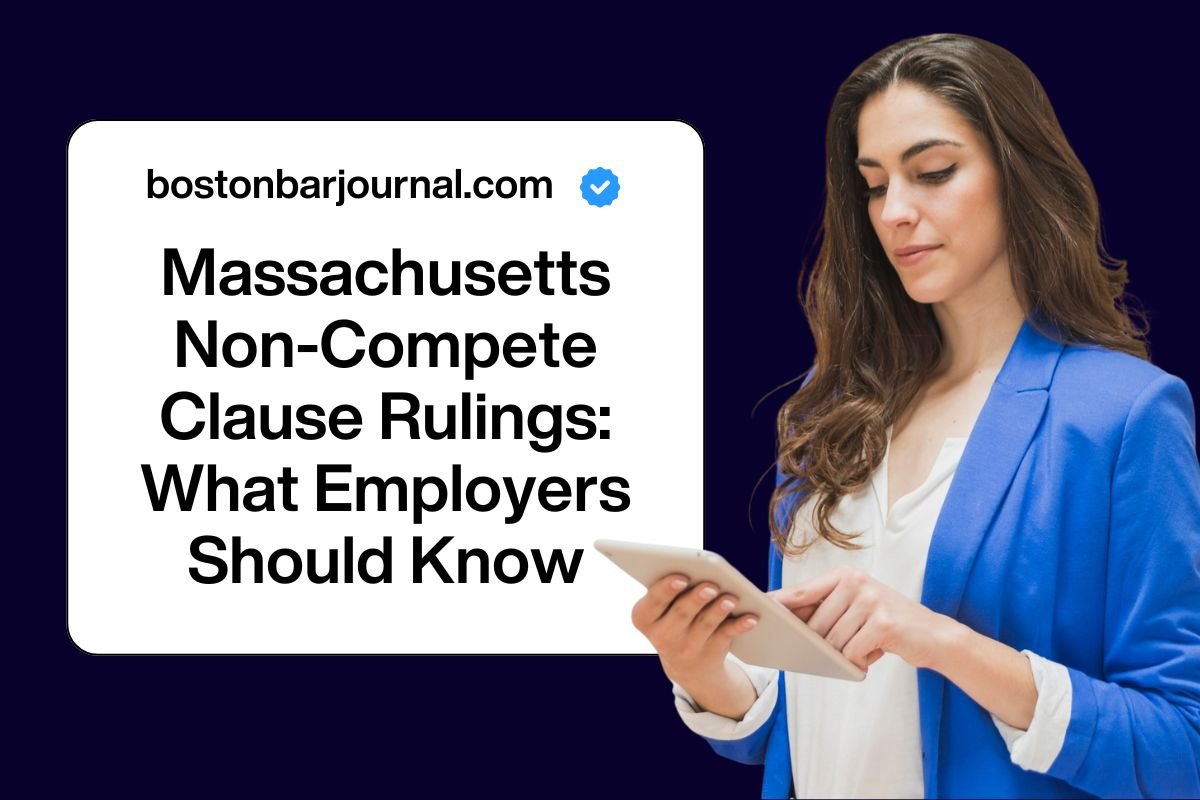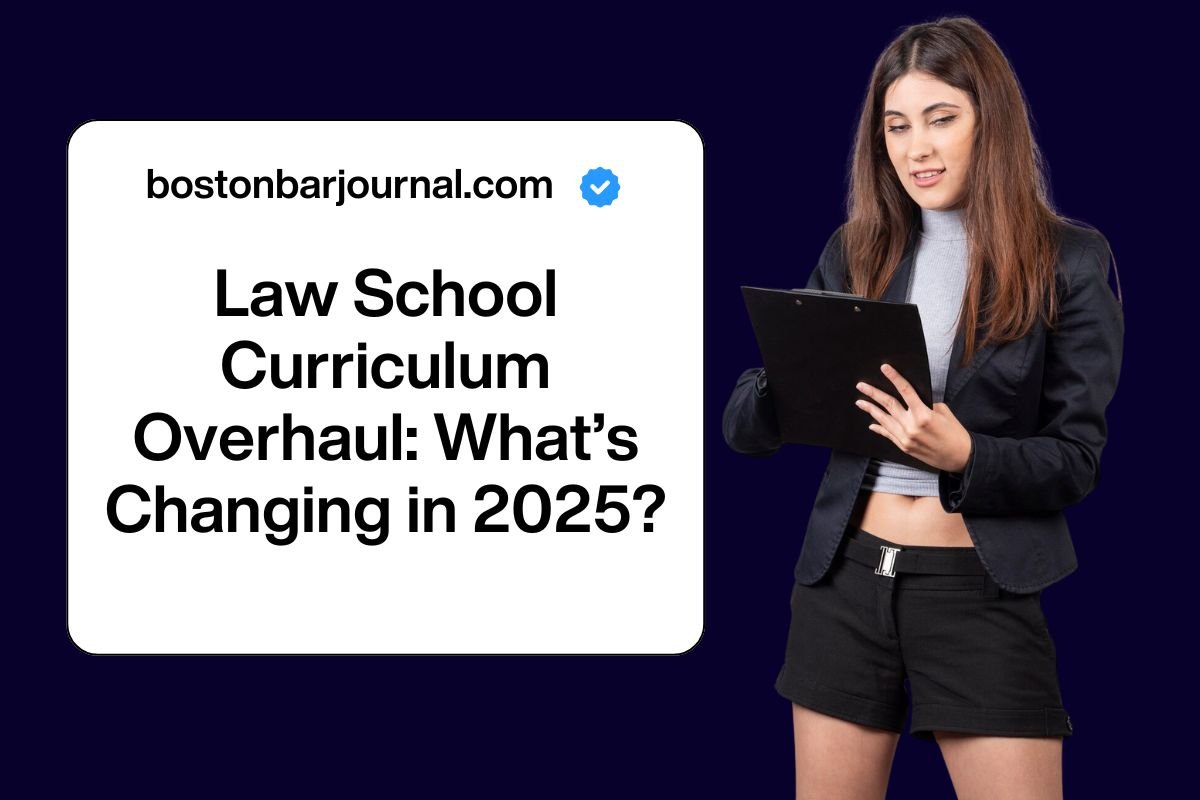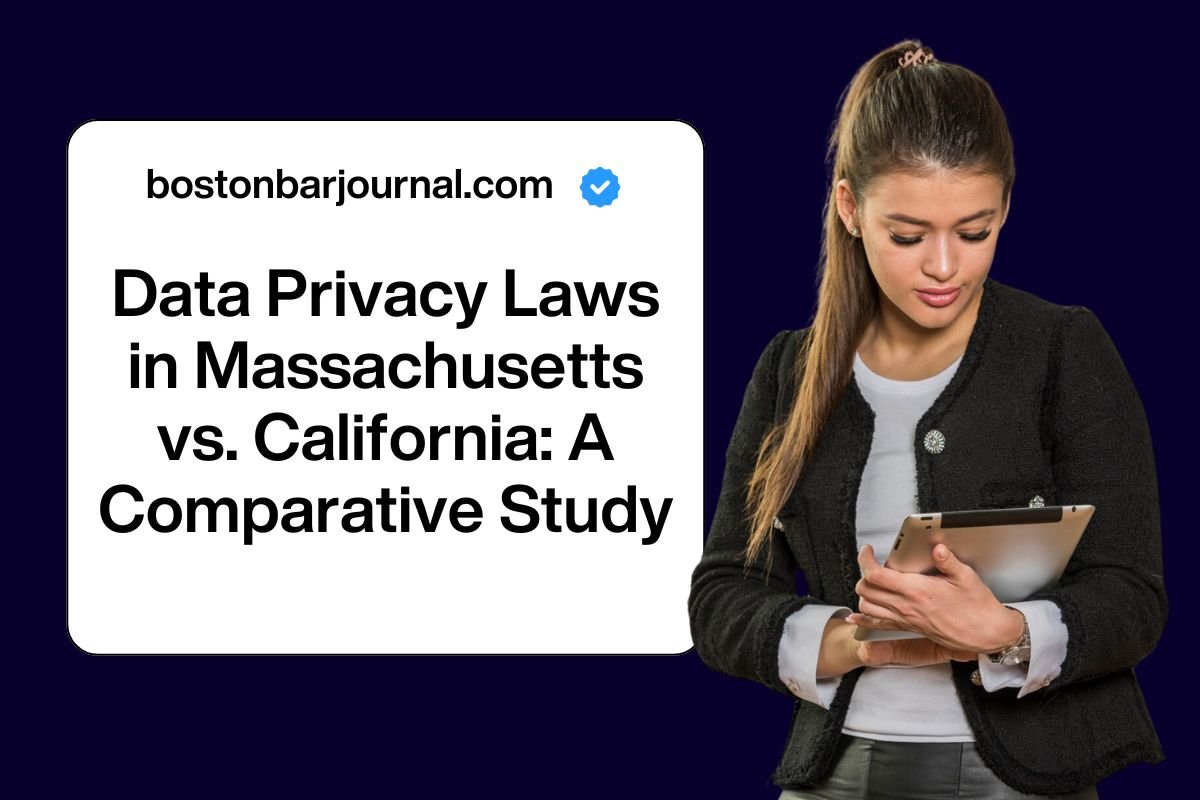The enforceability of the Non-Compete Clause in Massachusetts is one tool that is used to safeguard the employment policies and corporate governance, which help in protecting the company’s interests and also ensure fair treatment of employees.
Massachusetts includes significant regulations that govern these agreements, and understanding of these regulations is important for both employers and employees. This article explores the essentials of the Massachusetts non-compete clause, which offers insights and also provides guidance for navigating this complex legal terrain.
Massachusetts Non-Compete Clause Rulings
Non-compete agreements are agreements that put restrictions on staff from engaging in events that compete with their previous employer after the end of work relationships. The agreement aims to help in protecting trusted information and confidences of trade, and sustain a competitive edge in the market. Non-compete clauses must be rational and hardly personalized to protect authentic business interests.
Limitations are generally inadequate for one year, with a probable two-year exception under definite conditions. Geographic and activity restrictions must also be reasonable. Massachusetts courts usually disregard non-compete agreements due to their potential to limit an ability of employee to earn a living and repress free competition. In response to these concerns, Massachusetts passed the Noncompetition Agreement Act (MNAA) in 2018, considerably impacting the rules governing these agreements.
Key Elements of Massachusetts Non-Compete Agreements
Massachusetts passed the Noncompetition Agreement Act (MNAA) in 2018, which took effect on October 1, 2018, streamlining severe criteria for non-compete clauses to be constitutional. Here are some critical components:
Written Agreement
The agreement of non-compete must be documented in writing, and both the employer and employee have to sign it. The document needs to noticeably clarify the terms and conditions that govern the implementation of the non-compete.
Consideration
- For those who are new employees, the proposal of employment is adequate consideration.
- Those who are existing employees, there is a need for additional consideration beyond continued employment, such as promotion, raise, and special monetary payment.
Reasonableness of Restrictions
- The period of the non-compete cannot be more than one year, excluding in some cases where the worker has breached fiduciary duties or illegally taken possession only in that case, the period can be extended to 2 years.
- The geographic possibility must be rational and include only those areas where the worker provided facilities or had a noteworthy presence.
- The scope of forced activities must be personalized to safeguard authentic business interests.
Garden Leave Clause or Other Consideration
Agreements at the start of employment require a garden leave clause (paying at least 50% of the highest base salary for the restriction period) or other consideration. Agreements after employment begins need independent, fair consideration.
Disclosure and Notification Requirements
- The agreement must be issued to the new hires at the time of offer or within 10 business days before the beginning of service, whichever is earlier.
- For current employees, the contract must be issued within 10 working days before the agreement comes into effect.
Employee’s Rights
Non-complete agreements cannot be obligatory against the non-exempt employees, employees under the age of 18, and students or employees who have been dismissed without reason or laid off.
Practical Implications for Employers
Employers must prudently draft the non-compete agreements to guarantee obedience with the Massachusetts law. These are some of the best applications:
- Consult legal experts: after seeing the difficulty of the MNAA, it is suggested to consult with legal professionals who specialize in employment law to draft an agreement.
- Evaluate Necessity: It is also important to assess the requirement of non-complete agreements. You can also consider other options, such as non-disclosure agreements (NDAs) or non-solicitation agreements, that also provide sufficient protection without the severe requirements of non-compete.
- Documentation: It is also important to keep thorough documentation of the cooperation process and any deliberation offered to the employee to boost enforceability if dared.
Practical Implications for Employees
Employees should be aware of their privileges and duties under non-compete agreements. These are some consideration points:
- Understand the terms: it is crucial to carefully check the agreement and also pay close attention to the geographic scope, duration, and restricted activities. If there are any ambiguous terms, then seek clarification on them.
- Negotiate Terms: if there are any terms in the agreement to which you do not agree, then you can negotiate for those terms, consider discussing the limitations on the scope and duration to make sure that it is fair and reasonable.
- Seek Legal Counsel: Consult with the employment lawyer before signing the agreement to understand the implications fully and also explore possible avenues for amendments or negotiation.
Statistics and Trends
Non-compete agreements are prevalent across several industries, but even though many questions have been raised on their enforceability and the fairness of it.
- Prevalence: According to the assessment of the Economic Policy Institute there are about 18% Americans are focused on non-compete agreements.
- Impact on industry: the use of non-compete agreements is common in the sectors of sales and technology, and healthcare careers, where intellectual property and client relationships are critical.
- Legal challenges: There has been a developing movement against the non-compete agreements, with courts raising scrutiny of their requirement and rationality.
Summary
Massachusetts’s severe regulations on non-compete showcase a balanced approach to safeguarding business interests and also the rights of employees. Employers and employees have to comprehend these rules to safeguard fair and lawful engagement practices. By fostering transparent communication and adhering to the spirit of the MNAA, a more equitable and dynamic employment environment can be achieved, supporting both business innovation and employee mobility.
The agreement aims to help in protecting trusted information and confidences of trade, and sustain a competitive edge in the market. Non-compete clauses must be rational and hardly personalized to protect authentic business interests.
FAQs
Can a non-compete be enforced in Massachusetts?
Yes, non-compete agreements are enforceable in Massachusetts, but with some significant limits.
What is the NDA law in Massachusetts?
It’s Non-disclosure agreements that aim to protect the confidential information that is shared between employer and employee.
What is the non-solicitation clause in Massachusetts?
A non-solicitation clause in Massachusetts is restrictive covenant that prevents that put restrictions on staff from engaging in events that compete with their previous employer after the end of work relationships.







